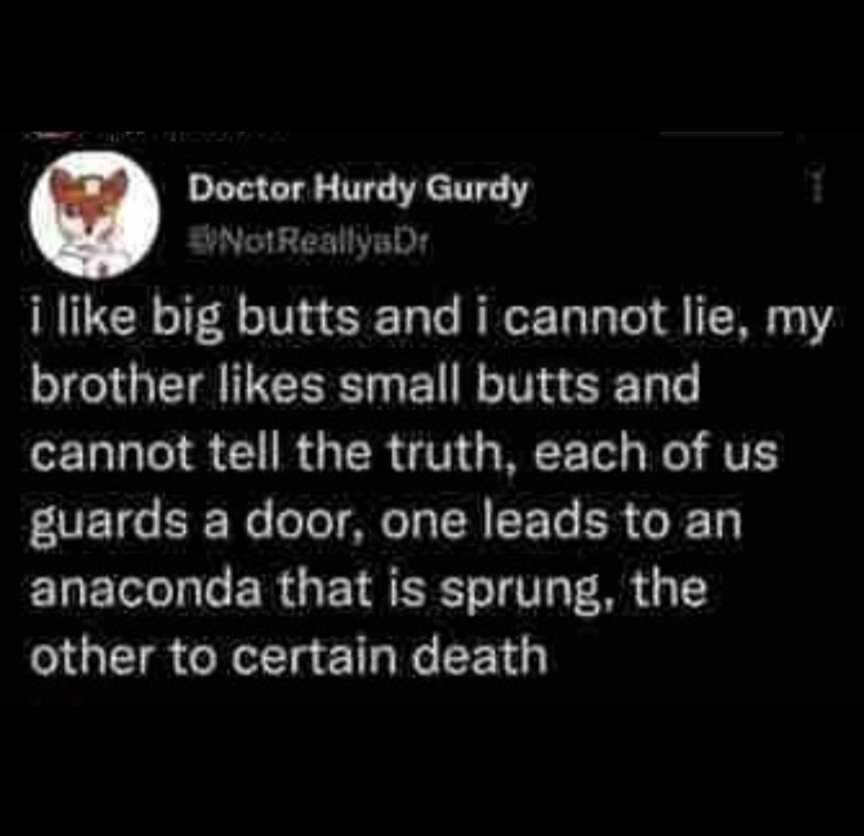this post was submitted on 01 May 2024
718 points (97.7% liked)
RPGMemes
11361 readers
365 users here now
Humor, jokes, memes about TTRPGs
founded 2 years ago
MODERATORS
you are viewing a single comment's thread
view the rest of the comments
view the rest of the comments

It works the same as the original puzzle. If you ask the lying small butt brother, he'll lie and say his brother would say he likes small butts. If you ask the truthful big butt brother, he'd say his brother would say he likes big butts, because he knows his brother likes small butts and would lie about it.
Essentially the negatives work out so that each brother answers with the kind of butt they themselves like, which you can then use to determine which is truthful (though at this point that somehow seems less important).
I feel like the truthful brother would say his brother likes small butts, because that's the truth.
Yes, but you're not asking him what his brother likes, you're asking him what he would say he likes, which is what flips it. You're basically making sure the answer is a lie regardless of which brother you ask.
The truth is that the whole setup is moot if it's one of the door-guards that tells you the rules, since they might be lying about the whole thing. There needs to be a trusted third-party involved, who knows about the guards but doesn't know which one's lying and which one's telling the truth.
True. It seems there are different versions of the puzzle, but from a quick search it was popularized by the movie Labyrinth, and there they get around it by having a second set of guards who don't know the answer explain the setup.
I really like this idea, and now I want to put it in a session. Like, we go through the whole 2-brothers riddle, but it turns out that the one explaining the rules is the one lying.
Maybe both doors lead to "death"/encounters, maybe the players are free to just walk past the brothers without consequence, maybe a third more interesting thing happens.
Got it! That makes sense. Thanks for explaining.
Glad to help!